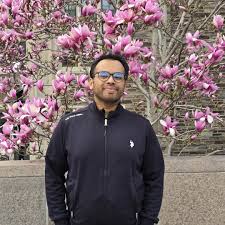The global academic community is reeling from the sudden and tragic death of Shashata Sawmya, a rising Bangladeshi researcher at the Massachusetts Institute of Technology (MIT), whose body was recovered from Okanagan Lake in British Columbia, Canada.
His passing comes just days after he delivered what would become his final academic talk at the University of British Columbia (UBC). At only 28 years old, Sawmya had already achieved remarkable academic success.
A graduate of the prestigious Bangladesh University of Engineering and Technology (BUET), he was known as the brightest student of his cohort, earning a perfect CGPA of 4.0—an almost unheard-of distinction.
After completing his undergraduate studies, he joined the BUET faculty, where his clarity of thought and intellectual generosity made him a favorite among both students and peers. His academic journey eventually led him to MIT, where he continued to distinguish himself in the field of engineering and data science.
News of his death has sent shockwaves across both Bangladeshi and international academic circles. According to Canadian authorities, his body was found in Okanagan Lake several days after his disappearance.
While police have ruled out foul play, the British Columbia Coroners Service has confirmed that an investigation into the exact cause of death is ongoing. Just days before his passing, Sawmya made headlines for a powerful and deeply emotional Facebook post that quickly went viral.
In it, he shared his disillusionment with the American academic system and the broader treatment of high-skilled immigrants in the United States. “The great American dream is dead,” he wrote, lamenting the emotional toll of endless visa struggles, academic burnout, and isolation.
He revealed that he had canceled several invited talks at elite U.S. institutions—including Harvard and Princeton—citing his growing frustration with a system that he felt devalued the very people contributing most to its innovation.
The post resonated widely with international students and researchers who saw their own experiences reflected in his words. Sawmya candidly detailed the immense pressures placed on immigrant scholars to perform at the highest levels, often with little support, uncertain futures, and profound loneliness.
His words opened a broader conversation about the mental health crisis facing young academics—particularly those from marginalized backgrounds who bear the weight of expectations from home and systemic barriers abroad.
For many who knew Sawmya personally, the news of his death has been devastating. Friends and colleagues describe him as a gentle soul—brilliant, introspective, and kind.
He was a mentor to many, an inspiration to thousands, and a symbol of what could be achieved through sheer determination and intellectual brilliance. In classrooms, he was known for his clarity and curiosity; outside of them, for his humility and warmth.
Tributes have poured in from across the world, with BUET and MIT both issuing statements expressing deep sorrow and honoring his memory. BUET alumni and current students have organized vigils, while many Bangladeshi media outlets have published op-eds reflecting on his life and legacy.
Some academics have also called for a renewed commitment to addressing mental health challenges within academia, especially for international researchers who often suffer in silence.
Sawmya’s death is not just a personal tragedy—it is also a profound loss for science, for Bangladesh, and for the academic world at large. In remembering him, many have committed to continuing the conversations he courageously started and to pushing for more humane, inclusive, and supportive academic environments.
He leaves behind a grieving family, countless students and colleagues who admired him, and a legacy defined not only by intellectual brilliance but also by the courage to speak difficult truths.




